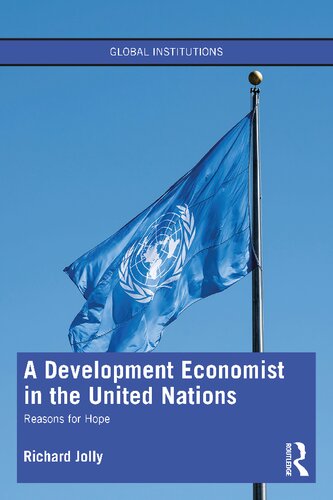

Most ebook files are in PDF format, so you can easily read them using various software such as Foxit Reader or directly on the Google Chrome browser.
Some ebook files are released by publishers in other formats such as .awz, .mobi, .epub, .fb2, etc. You may need to install specific software to read these formats on mobile/PC, such as Calibre.
Please read the tutorial at this link: https://ebookbell.com/faq
We offer FREE conversion to the popular formats you request; however, this may take some time. Therefore, right after payment, please email us, and we will try to provide the service as quickly as possible.
For some exceptional file formats or broken links (if any), please refrain from opening any disputes. Instead, email us first, and we will try to assist within a maximum of 6 hours.
EbookBell Team

0.0
0 reviewsThis book explores the joys and occasional frustrations of a development economist working for the United Nations.
From 1982 to 2000 Richard Jolly worked in senior positions in UNICEF and UNDP on assignments that were innovative, for the UN, the countries concerned and for development. The book analyses his experiences as Deputy Director of UNICEF, Principal Coordinator and co-author of UNDP’s widely acclaimed Human Development Report and a community development officer in Kenya, as well as his involvement in the UN and country mission to Zambia and ILO employment missions to Colombia, Sri Lanka and Kenya. It shows what the UN can achieve when there is strong leadership at central and field levels, together with decentralized approaches. Jolly’s experiences lead him to conclude there are in fact three UNs: the formal UN of governments; the second UN comprising UN staff members, often the source of initiatives and action; and the third UN of NGOs, experts, consultants and others closely following the UN or working with it, and also often bringing new thinking and innovation.
Reflecting on the need for international action to be more effective and the UN to be more strongly supported, this volume is a fascinating guide to students and scholars of global governance, development and international organizations and those working for them.